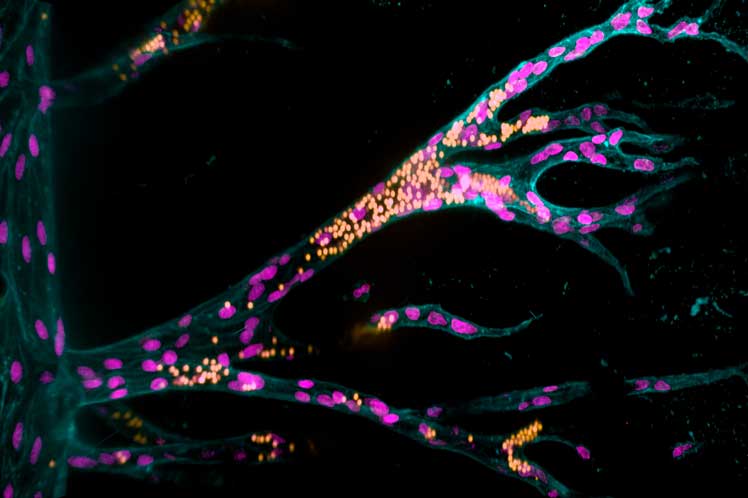Scientists from the Max Planck Institute for Molecular Biomedicine in Münster, Germany, made two channels using an acupuncture needle, in which the endothelial cells made contact with each other and attached to the synthetic tissue environment in the channel, thus forming a parent blood vessel after about a day.
When this has happened, the scientists deliver a growth factor cocktail of molecules that drive blood vessel growth in natural tissues through the second channel, whereupon the endothelial cells migrate into the hydrogel.
It revealed that tubular structures developed were smaller than those present in natural tissues due to interaction among certain molecules and sugar level in hydrogel.
By exchanging them, they managed to make the endothelial cells migrate faster to hydrogel and obtain proper blood vessels, according to conditions similar to natural ones.
Summing up, German scientists said the study is a first step in the development of functional artificial replacement organs, with wide applications in regenerative medicine and other related fields.
pgh/Pll/msm / nmr










